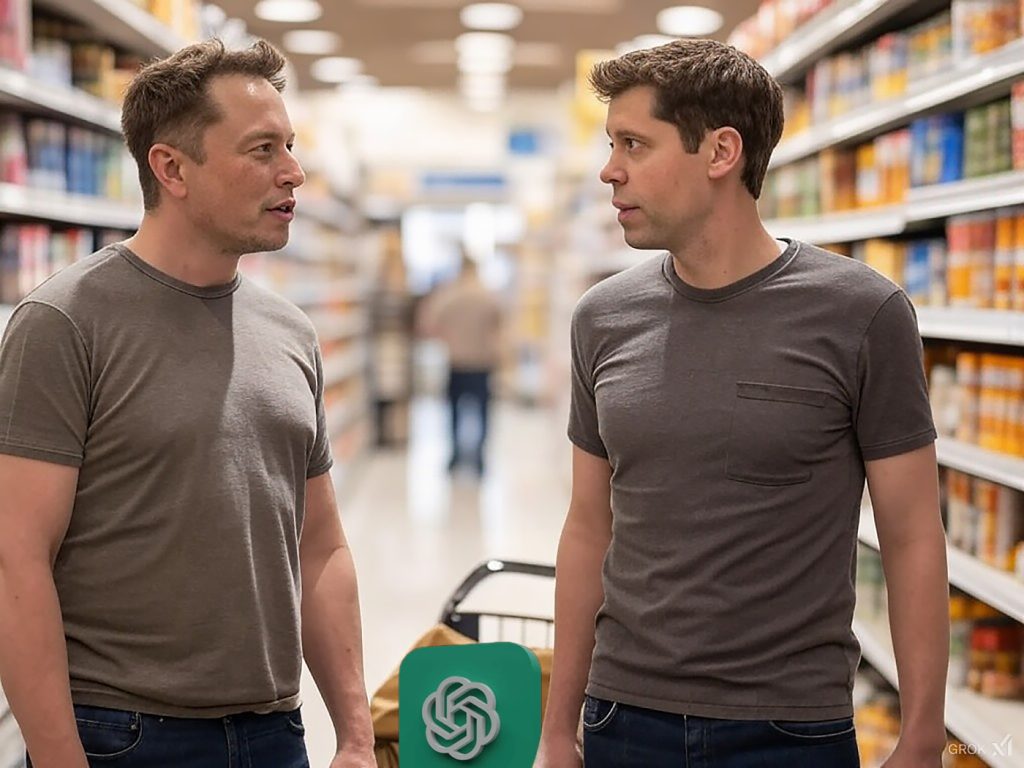Elon Musk's $97.4 Billion Bid to Take Over OpenAI: Visionary or Power Play?

Elon Musk has made headlines with a bold move to acquire OpenAI, the company he co-founded in 2015, for a staggering $97.4 billion. The controversial bid has reignited debates about Musk’s motives and the future of artificial intelligence (AI). Once an advocate for AI’s ethical development, Musk has grown increasingly critical of OpenAI’s shift towards a for-profit model. He accuses CEO Sam Altman and the company’s leadership of abandoning their original philanthropic mission in favor of profit-driven motives.
This recent move has left many questioning whether Musk’s intentions are truly rooted in a desire to guide AI’s future responsibly, or whether he is simply positioning himself to control a digital landscape that continues to evolve rapidly. His earlier departure from OpenAI in 2018, following a dispute with Altman over these very issues, now adds a layer of complexity to his bid. Is Musk trying to reclaim control of the company he helped create, or is he genuinely concerned about steering the development of AI in a way that aligns with his own vision?
These questions prompt deeper reflections on Musk’s legacy, leadership style, and the potential consequences of his involvement in shaping the future of artificial intelligence.
A Journey Marked by Innovation and Contradiction
Musk’s career is defined by high-risk, high-reward ventures that have reshaped multiple industries. From the electric revolution at Tesla to the space race with SpaceX, Musk has pushed the boundaries of what was once thought possible. His latest project, Neuralink, aims to merge humans with artificial intelligence, while his satellite internet service, Starlink, seeks to provide global internet access.
However, these achievements often come with a shadow. Musk’s vision for SpaceX, for example, includes the creation of a human colony on Mars, perhaps even an “Elon City” on the Red Planet. While these ideas inspire many, they also suggest a deeper drive for personal grandeur—a desire not just to change the world but to leave a permanent imprint on it.
His focus on innovation, while often groundbreaking, raises ethical concerns. The risks Musk takes are undeniably high, but so are the rewards. His ventures often blur the line between visionary leadership and reckless ambition.
A Co-Founder of OpenAI: From Partnership to Conflict
Musk’s relationship with OpenAI began in 2015 with a shared mission to create artificial general intelligence (AGI) that would benefit humanity. In the early days, Musk and Sam Altman were aligned in their vision for a safe and ethical approach to AI. However, as OpenAI evolved, Musk’s concerns grew. The shift towards a for-profit model, coupled with a greater emphasis on commercialization, led to a rift between the two men. Musk argued that the company was losing sight of its original goal, accusing OpenAI’s leadership of prioritizing profit over safety and ethical considerations.
This disagreement eventually led to Musk’s departure from the company in 2018. Despite the split, the tension between Musk and Altman has lingered, and Musk’s recent bid for OpenAI raises questions about his true motivations. Does Musk want to correct the course of AI development, or is he simply attempting to reclaim influence over a company that no longer aligns with his values?
Mixed Signals and the Stargate Project
Musk’s recent comments on the Stargate Project, a collaborative AI initiative involving major tech players like Oracle and SoftBank, further complicate the narrative. While the project has garnered attention in the tech world and beyond, Musk’s admission that it “did not have the money” it initially claimed to have has raised concerns about the financial viability of some of his ventures. This mixed message fuels speculation about his true intentions: Are Musk’s projects driven by genuine public interest, or are they primarily about maintaining his personal spotlight in the tech world?
The Stargate Project’s link to OpenAI’s future underscores the stakes. With Musk now seeking control of the company, the question arises: Is he positioning himself to play a dominant role in shaping AI’s trajectory, or is he simply trying to protect his status as a key player in an ever-changing industry?
The Price of Progress: Musk’s Calculus of Innovation
At his core, Elon Musk is a master of calculated risk. His ventures, from electric vehicles to space exploration, have redefined industries, but they also come with significant ethical and human costs. Musk’s willingness to push boundaries raises critical questions: What is the price of innovation when human lives and freedoms are at stake? Can technological advancement justify such sacrifices?
Musk’s focus on progress above all else often blurs the line between visionary leadership and reckless ambition. His calculated decisions seem pragmatic, but they frequently stir debates about the consequences of pushing technology forward at all costs.
Will the Real Elon Musk Please Stand Up?
Elon Musk’s actions often seem driven by a combination of grand vision and personal ambition. His ventures have undeniably reshaped multiple industries, and his latest bid for OpenAI promises to have significant implications for the future of AI. However, as his track record suggests, Musk is a man of contradictions—both a visionary and a figure often accused of self-serving motivations.
As we ponder Musk’s latest move and its potential impact on the development of artificial intelligence, we are left to ask: Is Elon Musk a visionary saint, leading humanity into a new era of technological advancement, or a self-serving sinner, more interested in shaping his own myth than in the collective welfare of society?
The answer, as always with Musk, may lie in the gray areas of ambition, ethics, and power. Only time will reveal the true legacy of this complex, enigmatic figure
